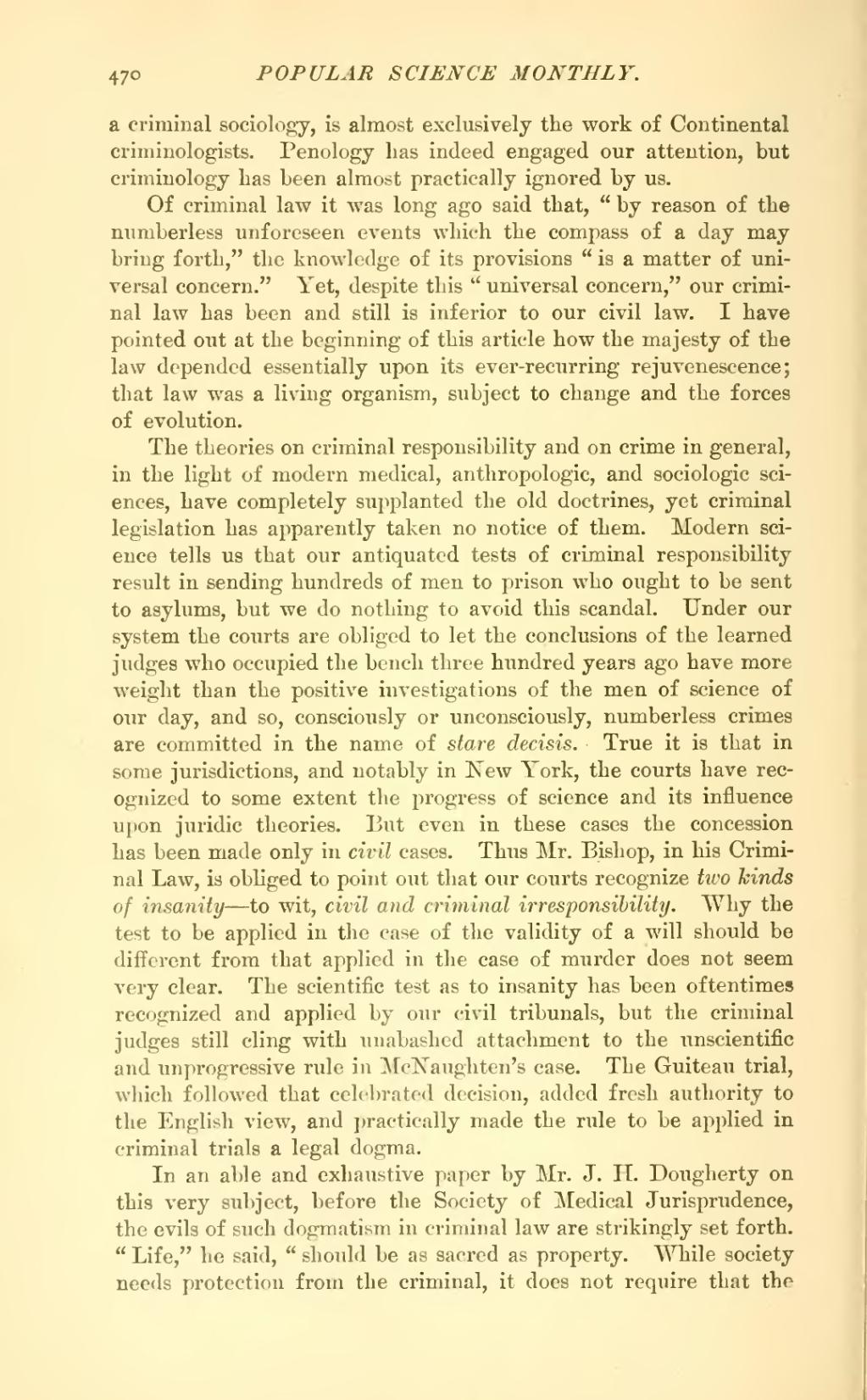a criminal sociology, is almost exclusively the work of Continental criminologists. Penology has indeed engaged our attention, but criminology has been almost practically ignored by us.
Of criminal law it was long ago said that, "by reason of the numberless unforeseen events which the compass of a day may bring forth," the knowledge of its provisions "is a matter of universal concern." Yet, despite this "universal concern," our criminal law has been and still is inferior to our civil law. I have pointed out at the beginning of this article how the majesty of the law depended essentially upon its ever-recurring rejuvenescence; that law was a living organism, subject to change and the forces of evolution.
The theories on criminal responsibility and on crime in general, in the light of modern medical, anthropologic, and sociologic sciences, have completely supplanted the old doctrines, yet criminal legislation has apparently taken no notice of them. Modern science tells us that our antiquated tests of criminal responsibility result in sending hundreds of men to prison who ought to be sent to asylums, but we do nothing to avoid this scandal. Under our system the courts are obliged to let the conclusions of the learned judges who occupied the bench three hundred years ago have more weight than the positive investigations of the men of science of our day, and so, consciously or unconsciously, numberless crimes are committed in the name of stare decisis. True it is that in some jurisdictions, and notably in New York, the courts have recognized to some extent the progress of science and its influence upon juridic theories. But even in these cases the concession has been made only in civil cases. Thus Mr. Bishop, in his Criminal Law, is obliged to point out that our courts recognize two kinds of insanity—to wit, civil and criminal irresponsibility. Why the test to be applied in the case of the validity of a will should be different from that applied in the case of murder does not seem very clear. The scientific test as to insanity has been oftentimes recognized and applied by our civil tribunals, but the criminal judges still cling with unabashed attachment to the unscientific and unprogressive rule in McNaughten's case. The Guiteau trial, which followed that celebrated decision, added fresh authority to the English view, and practically made the rule to be applied in criminal trials a legal dogma.
In an able and exhaustive paper by Mr. J. H. Dougherty on this very subject, before the Society of Medical Jurisprudence, the evils of such dogmatism in criminal law are strikingly set forth. "Life," he said, "should be as sacred as property. While society needs protection from the criminal, it does not require that the

